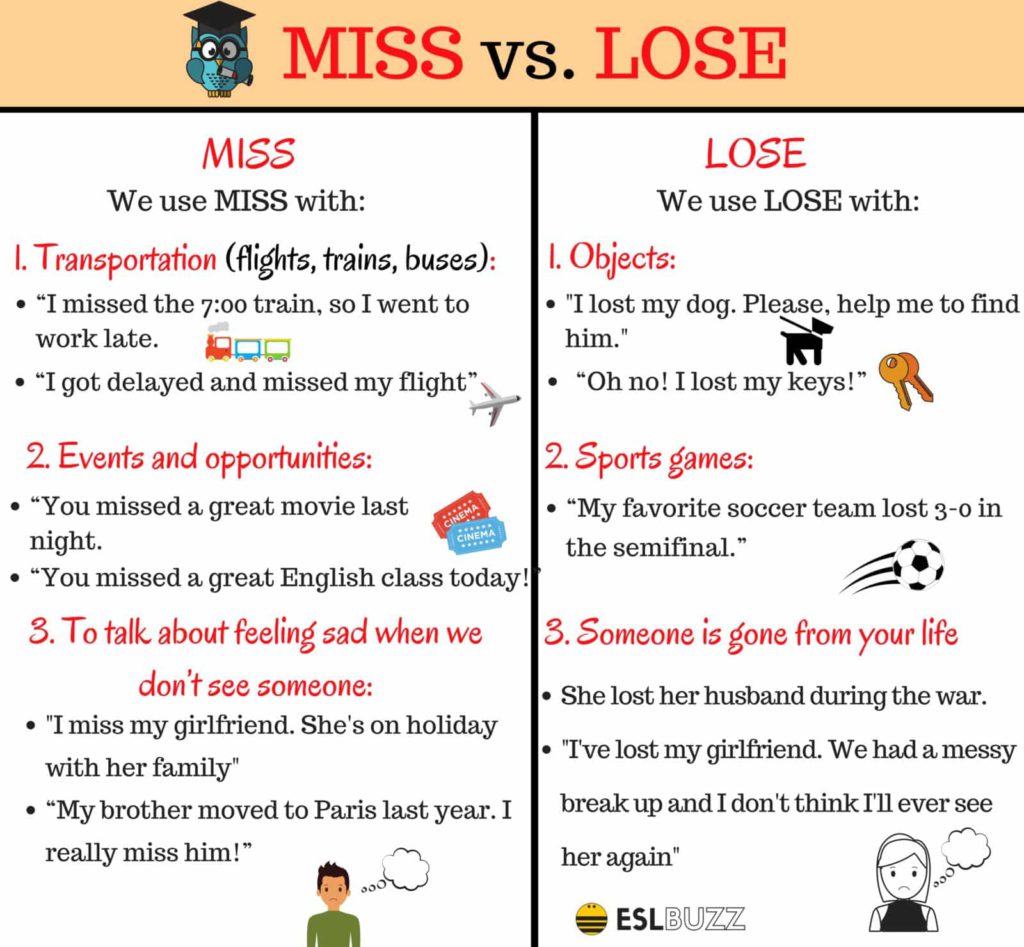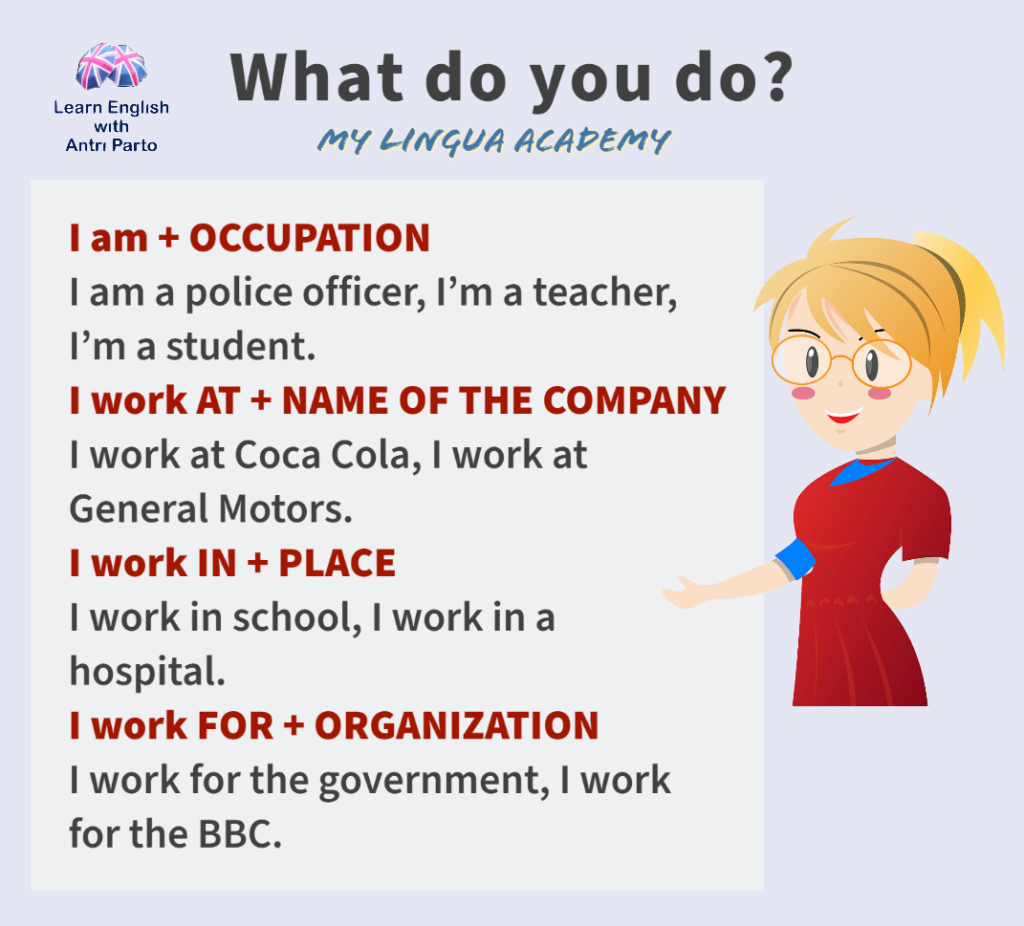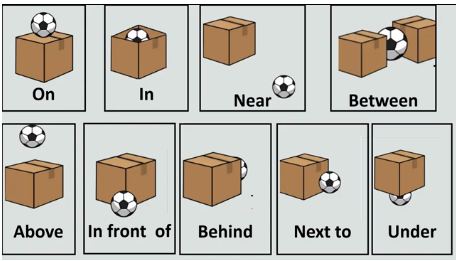
The verbs MISS and LOSE have several different meanings in English and they can be easily confused.
When to Use MISS
We use MISS in these cases:
- to not attend an event or something
- I missed your birthday.
- Alan, you missed a great concert last night.
- You missed class on Friday.
2. to arrive too late to get on a bus, train, or plane
- John missed the train this morning.
3. to not see or hear something
- The goalkeeper missed the ball.
- Sorry, I missed that. Could you repeat it please?
4. to feel sad about someone or something that you have stopped seeing or having
- My sister moved to Vietnam last year. I really miss her!
- I miss my girlfriend. She’s on holiday with her family.
IMPORTANT: if you are going to use a verb after the verb MISS, this verb must be in the gerund
- I miss going out with my friends.
When to Use LOSE
We use LOSE in these cases:
1. can’t find something or something’s gone
- I lost my dog. Please help me to find him.
2. sports games
- My favorite football team lost 5-1 in the semifinal.
3. someone is gone from your life
- I lost my Grandmother last year.
- I’ve lost my girlfriend. We had a messy break up and I don’t think I’ll ever see her again.
- She lost her husband during the war.
Collocations
- miss a chance/opportunity
- lose a chance/opportunity
- miss the point
- lose time/money
- lose confidence/interest/hope etc
- lose weight/height/speed etc
- lose your sight/hearing/voice/balance etc
- lose sight of something
- lose track of something/somebody
PRACTICE: Choose between the proper form of lose or miss.
a. The lady looking after the property was very helpful when we got lost/missed on the way back.
b. It is possible to lose/miss weight fast without dieting.
c. My pen is losing/missing from my desk! Who’s had it?
d. When Sylvia noticed her credit card was losing/missing, she called her credit card provider and cancelled it.
e. My apartment is only a block from the office, so I don’t lose/miss time commuting to work.
f. I lost/missed quite a lot of money on the stock exchange last year.
g. My daughter lives in Paris. I lose/miss her a lot.
h. I’ve just lost/missed the fast train to London.
i. Can you say that again, please. I lost/missed the thread of the conversation.
j. You’ve lost/missed the point. I don’t care about the money.
a. lost; b. lose; c. missing; d. missing; e. lose; f. lost; g. miss; h. lost; i. missed; j. missed




